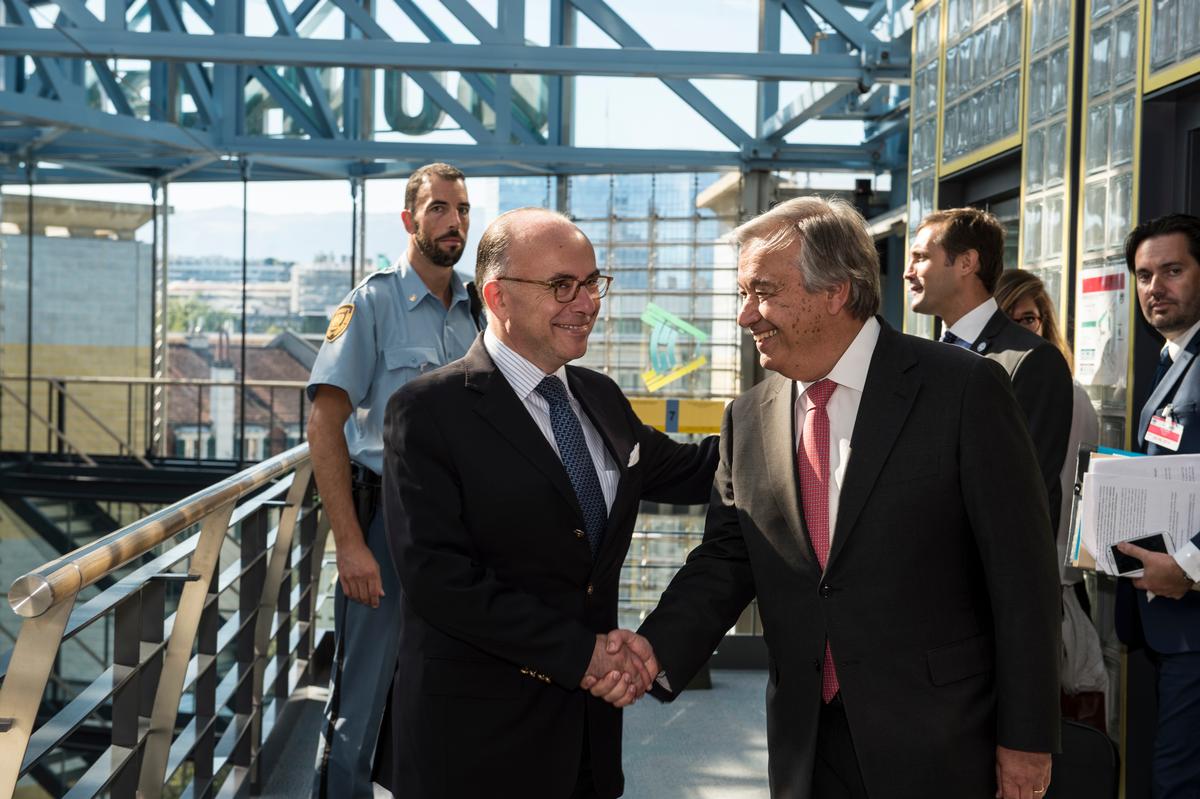UNHCR chief praises Ethiopia for open borders, refugee protection
UNHCR chief praises Ethiopia for open borders, refugee protection

ADDIS ABABA, Ethiopia, July 12 (UNHCR) - UN High Commissioner for Refugees António Guterres on Friday praised Ethiopia for providing shelter to more than 400,000 refugees while supporting the country's efforts to help neighbouring Somalia emerge from war and rebuild.
On the third and final leg of a regional tour that has also taken him to Somalia and Kenya, Guterres lauded Ethiopia for its open border and asylum policy and said it was "a pillar of refugee protection."
UNHCR works with the Ethiopian Home Ministry's Administration for Refugee and Returnee Affairs (ARRA) and other partners to help some 240,000 Somali refugees in eastern Ethiopia's Dollo Ado and Jijiga areas. Ethiopia also hosts more than 73,000 Eritreans, 62,000 South Sudanese and over 30,000 Sudanese.
The refugee agency and ARRA have developed guidelines to facilitate the delivery of humanitarian assistance inside Somalia, where signs of peace are emerging for the first time in more than two decades. These cross-border efforts aim to provide basic aid and services to people in stable areas.
Ethiopian Prime Minister Hailemariam Desalegn, in a meeting Friday with Guterres, emphasized the opportunity to build a "people to people" bridge between Ethiopia and Somalia and the need to urgently invest in Somalia to create basic infrastructure and services. At the same time, he said, Ethiopia would help more Somali refugees to obtain skills to enable them to be productive when the time comes to return home.
There are also plans under way to expand a self-sufficiency programme allowing skilled refugees to work outside camps. Under this project, some 1,200 Eritrean refugees attend universities. Guterres called the programme "remarkable" after visiting a group of graduates.
An innovative project with the IKEA Foundation is also working to develop self-reliance skills for Somali refugees and local communities in and around Dollo Ado, Kobe and Hilaweyn camps.
Guterres was visiting the region to promote a global initiative to find solutions for Somali refugees. As the country hosting the second largest Somali refugee population after Kenya, and as an influential neighbour, Ethiopia's role was critical, Guterres said. "The idea is to focus on conditions inside Somalia while at the same time mobilizing the support of the international community."
He expressed his concern for an estimated 1,700 separated and unaccompanied Eritrean children living in the Mai-Aini refugee camp and for refugees who undertake dangerous onward journeys from Ethiopia with human traffickers.
In a meeting with ARRA Director Isayas Wolde Giorgis, the High Commissioner reiterated UNHCR's commitment to refugee protection and response. "Ethiopia is living proof of the message that refugee protection is the right thing to do," he said, while adding: "The problem is that the number of refugees coming to Ethiopia is growing and the resources are limited."
Guterres pointed to the Syria conflict, which is draining funds for humanitarian assistance elsewhere. "It is vital, and also strategic, to maintain the support for all humanitarian actions in the Horn of Africa," he stressed.
By Melissa Fleming in Addis Ababa, Ethiopia






